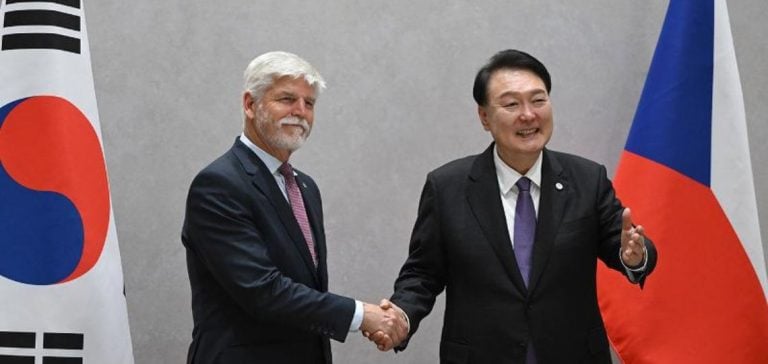South Korean President Yoon Suk-yeol’s visit to the Czech Republic represents a significant turning point in nuclear relations between the two nations.
The visit highlights the ambitious nuclear reactor construction project, led by Korea Hydro & Nuclear Power (KHNP), which aims to strengthen South Korea’s position in advanced nuclear technologies.
In particular, the focus is on Small Modular Reactors (SMRs), which are attracting growing international interest for their potential to transform nuclear power generation.
Project background and challenges
The Czech Republic has chosen a South Korean consortium to build two nuclear reactors as part of the Dukovany project, valued at 24 trillion won (around $17.4 billion).
The project is positioned as the country’s largest energy investment, underlining the strategic importance of nuclear power in the Czech energy mix.
However, challenges have been raised by Westinghouse and EDF, who argue that KHNP lacks the necessary licensing agreements to export reactor technologies based on US intellectual property.
These concerns could delay the project and require complex negotiations.
South Korea has already demonstrated its expertise in the nuclear field, notably with the successful completion of the Barakah nuclear power plant in the United Arab Emirates.
This success has strengthened KHNP’s credibility on the international market.
However, the integration of SMRs into the Dukovany project represents a major innovation, as these reactors offer distinct features that could meet the Czech Republic’s growing energy needs while complying with high safety standards.
The benefits of SMR for the Czech Republic
SMRs offer several advantages over traditional nuclear reactors.
Their smaller size allows greater flexibility in installation and location, facilitating their integration in areas close to energy consumption centers.
This reduces transmission losses and improves power grid reliability.
What’s more, the modularity of SMRs means that several units can be built in parallel, or reactors can be added over time as energy demand evolves.
In terms of safety, SMRs are designed with passive safety systems, meaning they can operate without human intervention or external power sources in the event of an emergency.
This feature makes them particularly attractive for countries like the Czech Republic, where energy security has become a priority, especially against the backdrop of the breakdown in energy relations with Russia.
SMRs could thus help to diversify energy sources and strengthen the country’s energy autonomy.
International collaboration and technological challenges
A crucial aspect of this project is the need for international collaboration to overcome the challenges of intellectual property and export licensing.
Westinghouse contested the agreement, claiming that KHNP did not have the rights to use certain reactor technologies.
However, Yoon said that Seoul and Washington are working together to establish a collaborative environment conducive to resolving these issues before the contract is finalized in March 2025.
This cooperation could be decisive for the success of the project.
Integrating SMRs into the Czech project may also require technological and regulatory adaptations.
Although SMR technology is promising, it is still in the commercial development phase, with few units currently in operation.
This implies that further testing and validation will be required before large-scale adoption in the Czech Republic.
Regulatory and technical challenges need to be carefully addressed to ensure the viability and safety of installations.
Future prospects and strategic implications
Yoon’s visit to the Czech Republic sends a strong message about South Korea’s desire to strengthen its economic relations with Europe, while consolidating its position in the nuclear sector.
Although disputes with Westinghouse and EDF represent a short-term obstacle, the integration of advanced reactor technologies such as SMRs could revolutionize the energy market in Central Europe.
The success of this project will depend not only on the technical and financial capabilities of the South Korean consortium, but also on Seoul’s ability to navigate the complex landscape of intellectual property rights and international regulations.
The project could also pave the way for new collaborations in other technology sectors, including spent fuel management and renewable energy technologies.
By establishing a long-term partnership between South Korea and the Czech Republic, both countries could benefit from increased synergy in the development of innovative, sustainable energy solutions.
The challenges of decarbonization and the global energy transition make such collaborations all the more relevant in the current context.





















